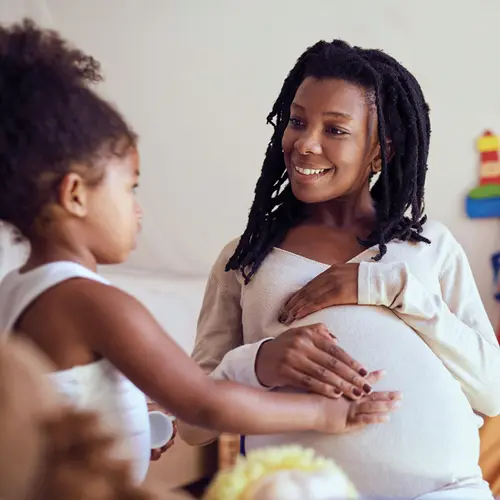While everyone's pregnancy experience is unique, certain types of pregnancy gear can help make the nine months easier, no matter what kind of pregnancy you have. Here's the WebMD trimester-by-trimester checklist of essential pregnancy gear:
Pregnancy Gear: Preconception/First Trimester
Prenatal vitamins. "Folic acid prevents neural tube defects, so you need to start taking a prenatal vitamin containing folic acid even before you conceive and continue taking it throughout your pregnancy," says Pamela Bertens, MD, an associate professor of obstetrics and gynecology at the University of Texas Health Science Center in Houston.The March of Dimes states that women should take a multivitamin with 400 micrograms of folic acid every day, particularly before pregnancy and during early pregnancy, as part of a healthy diet.
Good book on pregnancy. You really, really need "a good common sense resource about what is normal and what's not normal -- whether a book or a close girlfriend's phone number," Bertens tells WebMD.
Moisturizer. "A good moisturizer also helps, as many pregnant women complain of dry, itchy skin," Bertens says.
Pregnancy Gear: Second Trimester
Maternity belt. "These thick elastic straps that go under the stomach for extra support, can help prevent and/or alleviate some pregnancy-related back pain.
Comfortable shoes. "Spiky heels may be fashionable, but they are not good for pregnancy," says Bertens. The main problem with high heels is that you are more likely to fall and that can have devastating consequences during pregnancy.
New bras. Pregnant women will also need to do some bra shopping as breasts typically increase at least one cup size during pregnancy. "If you go to a specialized bra shop that is good at this, the saleswoman can help you get one bra for pregnancy and one for after, if you decide to nurse, that that will be right size," says Bertens. Your bra size is likely to increase by an additional cup size if you breastfeed.
Maternity clothing. Comfortable, loose-fitting maternity clothes are also important during pregnancy, says Nagaraj Gabbur, MD, the director of medical education and an assistant professor of obstetrics and gynecology at the State University of New York (SUNY) Downstate Medical Center in Brooklyn.
Pillows. Many women find that adding extra pillows to their bed helps make them more comfortable, Gabbur says.
Antacids. Heartburn is common during pregnancy, and can cause considerable discomfort, so Gabbur suggests putting Tums or Mylanta on your essential pregnancy gear list. Make sure you talk to your doctor before you take any type of medication.
Pregnancy Gear: Third Trimester
Car seat. While many future moms are superstitious and don't believe in buying anything until their baby is born, a car seat is a wise investment as you get closer to your due date, Bertens says. "You will definitely need a car seat regardless of where you live. You can't leave the hospital without one. It's regulation."
A crib, bassinet, or pack-and-play crib -- or some place picked out for the baby to sleep (even if that's in bed with you). If you are superstitious, have a crib picked out and paid for in advance and call the store to have it delivered once you do.
Diapers and Wipes
Layette. A layette is a collection of clothing for a newborn, and it's a good idea to have it on hand ahead of time. A layette typically includes receiving blankets to swaddle the baby, pajamas, onesies, socks, hats, bibs, burp clothes, and towels. It's a good idea to wash everything in advance with a mild detergent, as baby's skin is very sensitive.
Bottles, pumps. If you are going to breastfeed, you may need a breast pump and extra bottles to freeze and store milk. Pumping will give you more flexibility if you need to leave your baby with a sitter. If you will be using formula, you will need bottles (which must be sterilized) and more formula than you can possibly imagine.


